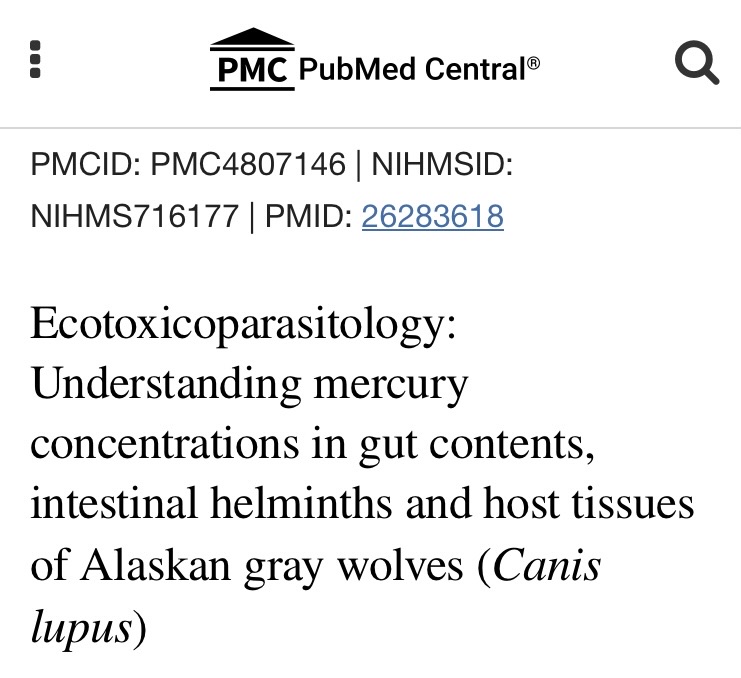Parasitic Infections: Friend or Foe?
There's been a lot of talk about the use of Ivermectin, an anti-parasitic drug, here on X.
Many people are praising it as a panacea for a wide range of of diseases and conditions, ranging from viral infections to cancers.
Thought I would offer my 2 cents on the interaction between parasitology and toxicology, and the potential harms of using pharmaceutical grade anti-parasitic medications.
Multiple studies have suggested a symbiotic relationship between parasitic infections and the hosts they inhabit.
Parasites are shown to bind toxins the host is being exposed to environmentally:
'Accumulation of heavy metals by intestinal helminths in fish: an overview and perspective.'
This study shows that intestinal parasites in fish sequester heavy metal toxins, the toxin levels inside the parasites are thousands of times higher than in the tissues or organs of the fish host.
'Ecotoxicoparasitology: Understanding mercury concentrations in gut contents, intestinal helminths and host tissues of Alaskan gray wolves (Canis lupus).'
Another study echoes the same results, intestinal parasites bind toxins that wolves are exposed to in their environment. The authors suggest that the parasitic infections serve as a biological sink for toxin exposures and confer protection to the host.
'Anti-parasite treatment results in decreased estimated survival with increasing lead (Pb) levels in the common eider Somateria mollissima'.
This study is alarming, ducks that receive anti-parasitic medication experience significantly increased lead levels in the blood, organs, and tissues. As the medication kills off the parasites, they unleash a toxin load that significantly diminishes the ducks' chances of survival.
Are parasitic infections beneficial or detrimental?
What are the potential consequences of taking pharmaceutical grade antiparasitic medications like Ivermectin?
Curious to hear opinions!


There's been a lot of talk about the use of Ivermectin, an anti-parasitic drug, here on X.
Many people are praising it as a panacea for a wide range of of diseases and conditions, ranging from viral infections to cancers.
Thought I would offer my 2 cents on the interaction between parasitology and toxicology, and the potential harms of using pharmaceutical grade anti-parasitic medications.
Multiple studies have suggested a symbiotic relationship between parasitic infections and the hosts they inhabit.
Parasites are shown to bind toxins the host is being exposed to environmentally:
'Accumulation of heavy metals by intestinal helminths in fish: an overview and perspective.'
This study shows that intestinal parasites in fish sequester heavy metal toxins, the toxin levels inside the parasites are thousands of times higher than in the tissues or organs of the fish host.
'Ecotoxicoparasitology: Understanding mercury concentrations in gut contents, intestinal helminths and host tissues of Alaskan gray wolves (Canis lupus).'
Another study echoes the same results, intestinal parasites bind toxins that wolves are exposed to in their environment. The authors suggest that the parasitic infections serve as a biological sink for toxin exposures and confer protection to the host.
'Anti-parasite treatment results in decreased estimated survival with increasing lead (Pb) levels in the common eider Somateria mollissima'.
This study is alarming, ducks that receive anti-parasitic medication experience significantly increased lead levels in the blood, organs, and tissues. As the medication kills off the parasites, they unleash a toxin load that significantly diminishes the ducks' chances of survival.
Are parasitic infections beneficial or detrimental?
What are the potential consequences of taking pharmaceutical grade antiparasitic medications like Ivermectin?
Curious to hear opinions!



• • •
Missing some Tweet in this thread? You can try to
force a refresh




